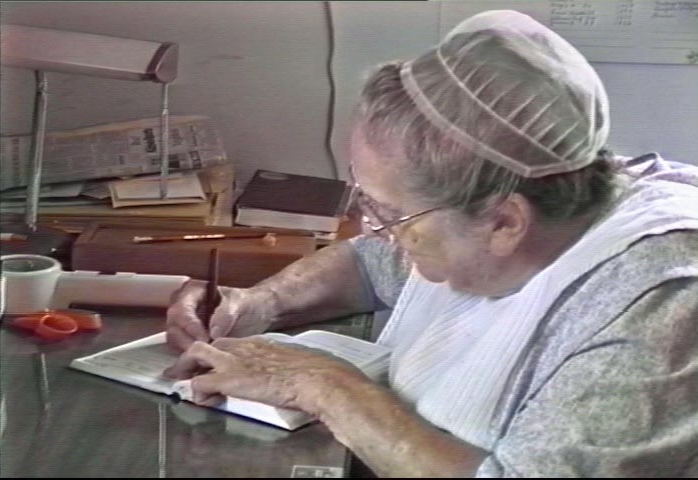Available from Amazon.com
The Measure of a Life: Diaries of a Mennonite Farm Wife 1920-2000
Selections from The Prologue
My mother, Ruth Martin Hostetter, began keeping a diary in 1920 when she was fifteen and living on the family farm in Cattail, Pennsylvania with her parents and seven siblings. In those early diaries there are hints of an independent daughter trying to find her way. “…Had my hair combed to suit Mamma.” (4/26/20) A few months later she wrote, “Hoed sweet potatoes three times till they suited Mamma, which rather insulted me.” (6/10/20)
…
I have often wondered why at the end of each of her busy days, days of work in the fields, in the garden, in the kitchen, with stacks of dirty laundry and dishes, eggs to gather, peas to pick, cows to milk, twelve children to feed and care for, why at the end of each of those days did she sit down at the desk and write in her diary?
I once asked her, and she answered, simply, “To keep track.” And that is what she did. She kept track of dozens of this and bushels of that, and bunches and buckets and bales; and quarts and crocks and lathes and shocks. She noted how many workers she fed when they came to thresh or fill silo. She recorded what pies or cakes or puddings were made in preparation for Sunday dinner, how many gallons of milk were returned when the pole cat got in the milk house. She noted the ever-changing price of eggs, the cost of shoes, how many souls were saved at the revival.
When I was growing up, I was fascinated by my mother’s diaries. I had dreams of becoming a writer, and her daily writing practice was the closest model I had. There was nothing secretive about her diary. It was always lying on the desk where anyone could read it. I often read what she had written, to see if my name was mentioned. As the tenth of twelve children, it made me feel more special if she said something about me, even though it might be a very straightforward reporting, “The children stayed home because of the snow…Mary Alice and Sanford worked on their quilts.” Having it mentioned in the diary, no matter how mundane, made it seem more important
Ruth Martin Hostetter
Selections from The Epilogue
My mother died on May 2, 2000. The pen was still clipped to the cover of her last diary when I received it, and remains there still. My father died on April 28, 2006, just a week before what would have been his 100th birthday. As I have read through all those years of diaries, combing through and selecting details of their long and productive lives to include in this book, I have looked for nuggets that would represent both the ordinary and the extraordinary of their days. My filter has been, as all filters are, imperfect. Others might well have chosen differently what to include, what to exclude.
…
This book is, I hope, a way for her to share her stories, remind us of a heritage, and bear witness to what it meant to be alive during this time: to raise a family, to tend a farm, to wake up each day and make the best of it, and then, thankfully, at the end of the day, to reflect and take note. She offers us endless records of bales and bushels, quarts and crocks, lathes and shocks, but she knew, and we know, that the measure of a life both includes and transcends those details.


